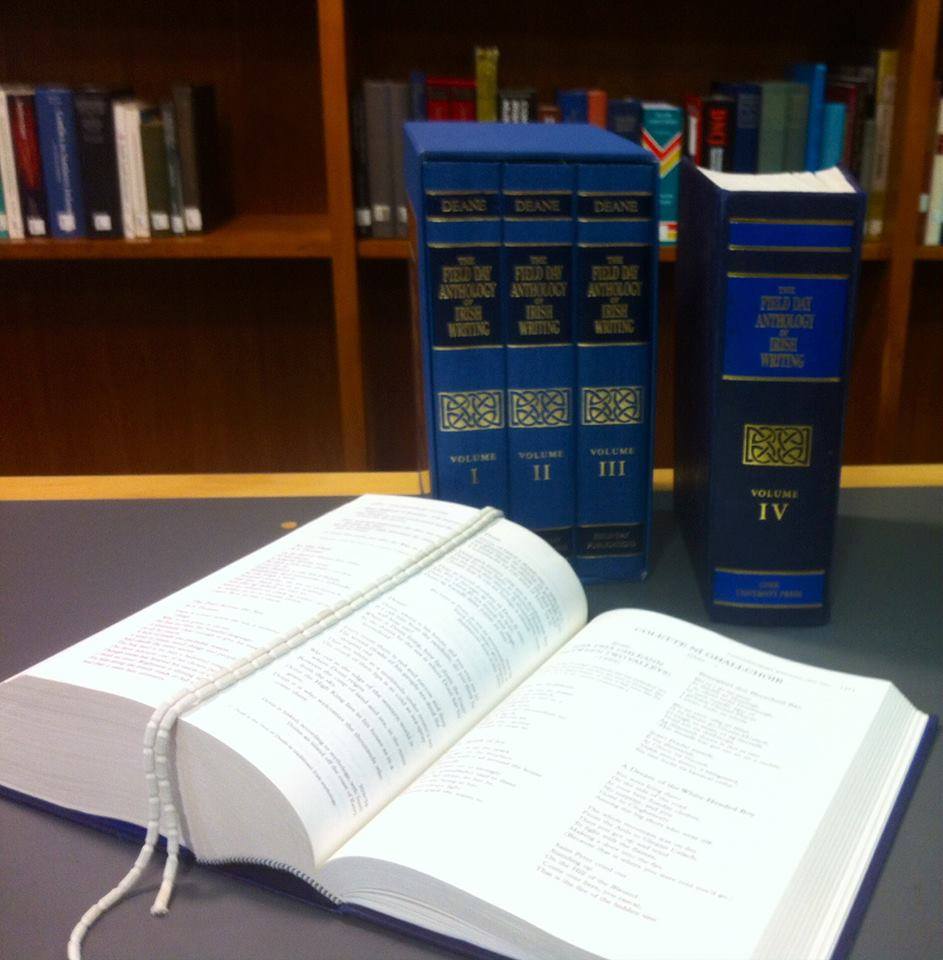- About Us
- People
-
Projects
- - Current Projects
-
- Past Projects
- - Book History Manuscripts
- - Mama and Papa in Indigenous Australia
- - Mapping Co-Lexification Patterns in Sahul
- - Palmerston Island Social Networks, Linguistic Variation and Language Change
- - Mapping Currents of Change and Exchange in the Pacific
- - Aboriginal Dreaming
- - Uruk 3000 BC
- - At the Heart of It
- - Music, Mobile Phones and Community Justice in Melanesia
- - Geo-language Games
- - Journal Finder
- - Migration, Mobility and Connection
- - Digital Lives and Archives of Irish Literature and History
- - Just Spaces
- - Digital Visualization: Ming and Qing Buddha Statues in the Hunan Region
- - ARCHivER
- - Waves of Words
- Events and Seminars
Digital Lives and Archives of Irish Literature and History
A digital reconfiguration of Irish literature and history that will deepen and challenge scholarly research and research practice in this field, as well as advance the ambitions of feminist historiographers.
The broad ambition of this project is to enrich and advance scholarly study and research practice relating to Ireland's literature and history, as well as examine the impact of exploring Ireland's past and textual legacy differently as a result of digital evolutions within Irish studies. At its core is the digitization of The Field Day Anthology of Irish Writing (5 vols.) in collaboration with JSTOR. The project builds on the JSTOR Ireland Collection, which has already made available and searchable online an interdisciplinary and international collection of journals and other scholarly resources which have a significant focus on Ireland. The project is further aligned with an ongoing initiative to digitise significant archival holdings relating to Irish women's literature.
On publication in 1991, the first three volumes of the Field Day Anthology were considered a 'land-mark event in twentieth-century literature' and were praised for their wealth and diversity. The volumes, however, also ignited controversy over the paucity of women writers and texts that had been included and, as a consequence, the final two volumes on women's writing were published in 2002. The full set of volumes now comprise one of the most diverse and significant anthologies of Irish writing in print and continue to challenge and deepen our understanding of Irish literature, history, and canonicity. Significantly, the interrogation of the first three volumes has also created a virtual space of dialogue between the earlier and later volumes.
The anthology's digital reincarnation will better enable these conversations and will, potentially, reveal new configurations of both the anthology's source materials, and the critical narratives that surround them. Such configurations will make this material amenable to new interrelations and analysis not possible in print-bound form. The contents of the anthology will also be visibly exposed to scholarly criticism across a broad spectrum of current and historical Irish studies research and resources collected within the JSTOR Ireland database. Cross-referencing between volumes will take on a whole new dimension and will push hitherto under-studied writers and texts into fresh critical territory that is continually being updated.
This kind of radical online circulation has particular ramifications for volumes 4 and 5 and the recovery processes of feminist literary historiography by disrupting the conventional linear alignment of women's history and literature. The multiple and fractured elements of historical narrative which many critics view as necessary to an inclusive feminist history, as well as the removal of the material structures which often exclude women's writing, are enhanced by the digitisation of women's texts, histories, and archives. As such, the project is also affiliated with the creation of a digital archive and exhibition of two major nineteenth-century Irish women writers, Edith Somerville (1858-1949) and Martin Ross (1862-1914). This archival mode of digital retrieval work moves forward the ambitions of feminist historiographers. The concomitant analysis of the transformation from print to digital format also opens up new discourses for thinking about digital technologies and their increasingly meaningful relationship with feminist, gender, and women's studies within the humanities.
References
- Somerville & Ross Collection Digital Archive
- Somerville and Ross Exhibition
- JSTOR Ireland Collection
- Field Day Anthology of Irish Writing Digitisation Project
- Field Day Project Twitter
Project Members
- Dr Anne Jamison
- Deirdre Wildy (QUB)
- Anne Ray (JSTOR)
- Dr Michael O'Connor (QUB)
- Dr Frank Ferguson (UU)

Mobile options:
